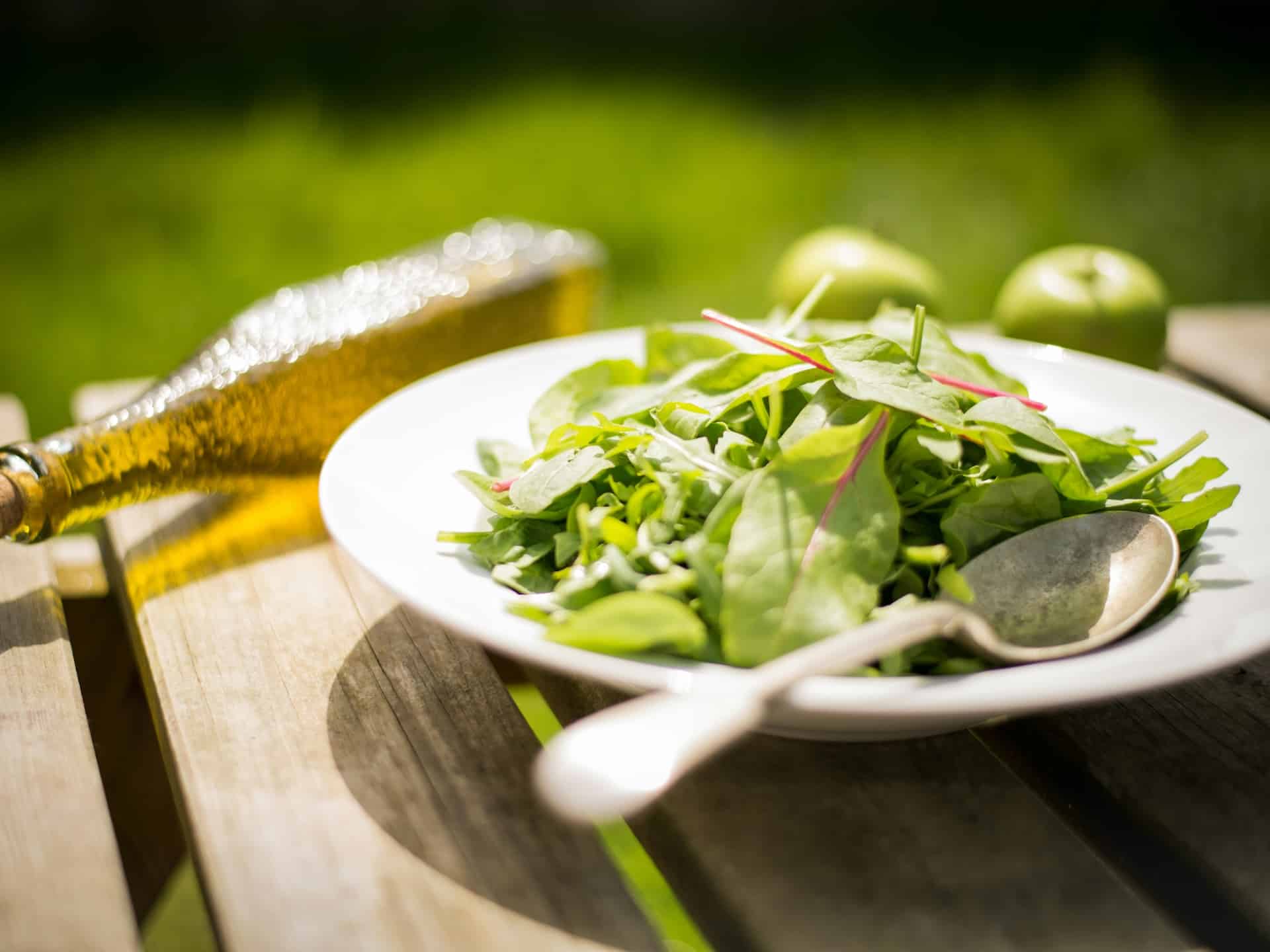
Hypothyroidism or underactive thyroid (like hyperthyroidism) is a condition that originates in the thyroid gland. Located in the front of the neck, the thyroid is responsible for regulating our cellular metabolism. To do this, it secretes the hormone T4 or thyroxine, and the hormone T3 or triiodothyronine. thyroid hormones They help the body use energy, maintain body temperature and help different organs such as the brain, heart, and muscles function normally.
It occurs when the thyroid gland not producing enough hormones that control the way the body’s cells use energy. This causes a slowing down our metabolism.
Tamara Fernández, a clinical dietician-nutritionist specializing in nutritional support in critical care, differentiates two types of hypothyroidism, depending on the causes that provoke it:
- Primary hypothyroidismIt accounts for 95% of cases. It is caused by a thyroid disorder, such as Hashimoto’s disease (an alteration of the immune system), or treatment with radioactive iodine, among others.
- Secondary or central hypothyroidism.. The origin is in problems in the hypothalamus or the pituitary gland. The consequence is that the TSH hormone, which is the thyroid-stimulating hormone, stops being secreted.
How do I know if I have hypothyroidism?
There are no typical clinical manifestations specifically associated with this pathology. “That is why the diagnosis of hypothyroidism is based mainly on laboratory tests,” says the expert. These tests consist of blood tests for thyroid hormones and TSH.
TSH values that indicate hypothyroidism
The diagnosis of primary hypothyroidism is obtained with “an elevated concentration of TSH in serum and a low concentration of free T4 in serum. It can also occur in a previous phase, so patients with an elevated concentration of TSH and a normal concentration of free T4 in serum may have subclinical hypothyroidism,” says Fernández.
In contrast, in central or secondary hypothyroidism, “we find a low serum concentration of T4 and a TSH that is not as elevated.”
With hypothyroidism, do you gain or lose weight?
There is a real relationship between weight and thyroid diseases. “Some of the typical manifestations of hypothyroidism include a general slowing down of metabolic processes. This can lead to weight gain.«, says the expert.
However, this weight gain will depend on the magnitude of the thyroid hormone deficiency and the severity with which the deficiency develops. Hypothyroidism is best tolerated when there is a gradual loss of thyroid function and the symptoms are progressive.
The typical clinical manifestations of hypothyroidism, such as physical weakness, fatigue, constipation, dry skin, decreased concentration and intolerance to cold, can also be modified by other factors, such as the coexistence of non-thyroid diseases.
Hypothyroidism in women
The The prevalence of hypothyroidism is higher in women and the risk of suffering from it increases with age.This disease can cause infertility problems, as it can also affect the hormones of the menstrual cycle.
Pregnancy
Hypothyroidism has been associated with an increased risk of pregnancy complications, including severe preeclampsia, premature birth, placental abruption, neonatal respiratory distress syndrome, and/or pregnancy loss, compared with women without thyroid problems.
Menopause
Fernández warns of the need to “pay attention to the diagnosis of hypothyroidism in postmenopausal women, since its incidence increases and the symptoms and signs can be attributed to manifestations of menopause and other diseases.”
When in doubt, it is best not to hesitate and have some thyroid function tests done.

Recommended foods for hypothyroidism.
For hypothyroidism caused by Hashimoto’s, which is the most common, «diet therapy is based on adequate nutrition for the body and helping the immune system through an anti-inflammatory diet.»
Since it can cause intestinal transit disorders, leading to constipation problems, attention should be paid to adequate water and fiber intake.
It is also necessary to take care of the intake of minerals such as iron, iodine, selenium, zinc, magnesium, vitamin A, D, necessary for the functioning of the gland, production of hormones and their transport through the blood.
With this background, Fernandez recommends «opting for a varied diet with food rotation to ensure maximum variety. You should try be colorful “when planning meals.”
Foods to limit in the diet for hypothyroidism
It is common to find references to foods that are forbidden for hypothyroidism, a term that is too blunt and which the expert avoids. Instead, she prefers to point out those foods or nutrients whose intake should be controlled. And, in any case, never eliminate food groups without first consulting an expert.
- Gluten. Eliminating gluten from the diet may be beneficial for some people, but they should discuss their specific situation with a gastroenterologist and endocrinologist. A gluten-containing diet can reduce the amount of fiber in the diet, as well as some vitamins and iron, so it should be discontinued by a dietician-nutritionist if necessary.
- Dairy“It is possible to have lactose intolerance when you have Hashimoto’s, so some people may also need to eliminate dairy. This can lead to iodine deficiencies.”
- Goitrogenic foods. This group includes broccoli, kale, cauliflower, cabbage, onions, sweet potatoes, chestnuts, cassava and peanuts, among others. “They block the absorption and use of iodine, but if we cook them for at least 5 minutes, much of this effect is lost.”
- SoySoy also blocks iodine absorption, but its effect persists after cooking. This limitation only applies to people diagnosed with hypothyroidism and, in addition, with low iodine intake.
Are there ‘forbidden fruits’ for hypothyroidism?
Again, the expert stresses that we cannot speak of forbidden fruits, but rather limited ones and only for people diagnosed with hypothyroidism, such as grapefruit, because it tends to interfere with numerous medications.
Dietary supplements for hypothyroidism
The expert recommends them only «in those cases where there is clinical suspicion or confirmation of some deficiency, such as anemia, or if it is suspected that the requirements are not being met with diet alone.»
In the case of pregnant women, Fernandez recommends routine supplementation for all pregnant women, including iodine in the recommended amounts.
Vegetarians and vegans also often need to supplement with iodine in addition to vitamin B12.
Beware of herbal medicine and other ‘natural’ remedies
It is often believed that since they are of natural origin, they cannot do any harm. Fernández warns against this error.
- Supplements with algae should be avoided due to their high iodine content.
- As for traditional herbs, “further studies are needed before their use in routine clinical practice can be recommended.”
- I recommend turmeric as a condiment in food for its anti-inflammatory action. Its absorption is enhanced if taken with black pepper.
Practical recommendations from the dietician-nutritionist
Here are some tips from dietician-nutritionist Tamara Fernández:
- Avoid ultra-processed foods in general.
- Drink enough fluids, especially water.
- Limit soft drinks, alcohol and fruit juices.
- Don’t get carried away by it itworksformenot even for him nutritionism (think about nutrients and not the food as a whole).
- There is a lot of information out there these days, often contradictory. If you are struggling to figure out what is considered healthy and how to plan a menu, the Mediterranean diet pattern and the Harvard plate can be good places to start.
- See a qualified professional for a diagnosis of thyroid disease and consult a qualified dietitian before deciding to eliminate food groups.
Weekly menu
| Day | Breakfast | Lunch | Dinner |
| Monday | Spinach and pepper omelette with toast | Quinoa salad with avocado and salmon | Baked chicken with roasted potatoes and broccoli |
| Tuesday | Red fruit smoothie with Greek yogurt and dark chocolate | Lentil stew with vegetables (pepper, carrot, onion) and potato | Gazpacho, boiled egg and fresh cheese |
| Wednesday | Whole wheat toast with extra virgin olive oil, tomato and white cheese | Chickpea salad with spinach and mixed seeds | Grilled salmon with asparagus and potatoes |
| Thursday | Oatmeal porridge with fresh fruit | Tofu skewers with roasted vegetables and sweet potato | Quinoa salad with roasted vegetables and chicken |
| Friday | Scrambled eggs with spinach and mushrooms and whole wheat toast | Pumpkin soup with toasted almonds Baked cod with peppers | Eggplants stuffed with ham and brown rice |
| Saturday | Green smoothie with spinach, pineapple and ginger. Oatmeal porridge with seed mix | Pasta salad with lamb’s lettuce, sardines, avocado and orange | Grilled chicken with beet salad |
| Sunday | Whole wheat toast with hazelnut butter and a piece of dark chocolate | Peppers stuffed with quinoa and vegetables | Beef stew with vegetables and sweet potato |
The ALDI Council
If you are treating a disease, whatever it may be, consult your doctor before making drastic changes to your diet. And seek the help of a dietician-nutritionist so that your diet does not interfere with your treatment.

Tamara Fernandez. Coordinator of the Clinical Nutrition and Dietetics specialization group of the Spanish Academy of Nutrition and Dietetics. Nurse, dietician-nutritionist responsible for the management of artificial nutrition in the Critical Care Unit of the Maelor Hospital –NHS–. Responsible for nutritional support in the Gastroenterology ward. Clinical Supervisor and Collaborator of the National Institute for Health Research (NIHR) of the United Kingdom. Instagram and Twitter: @tata_glucosa







